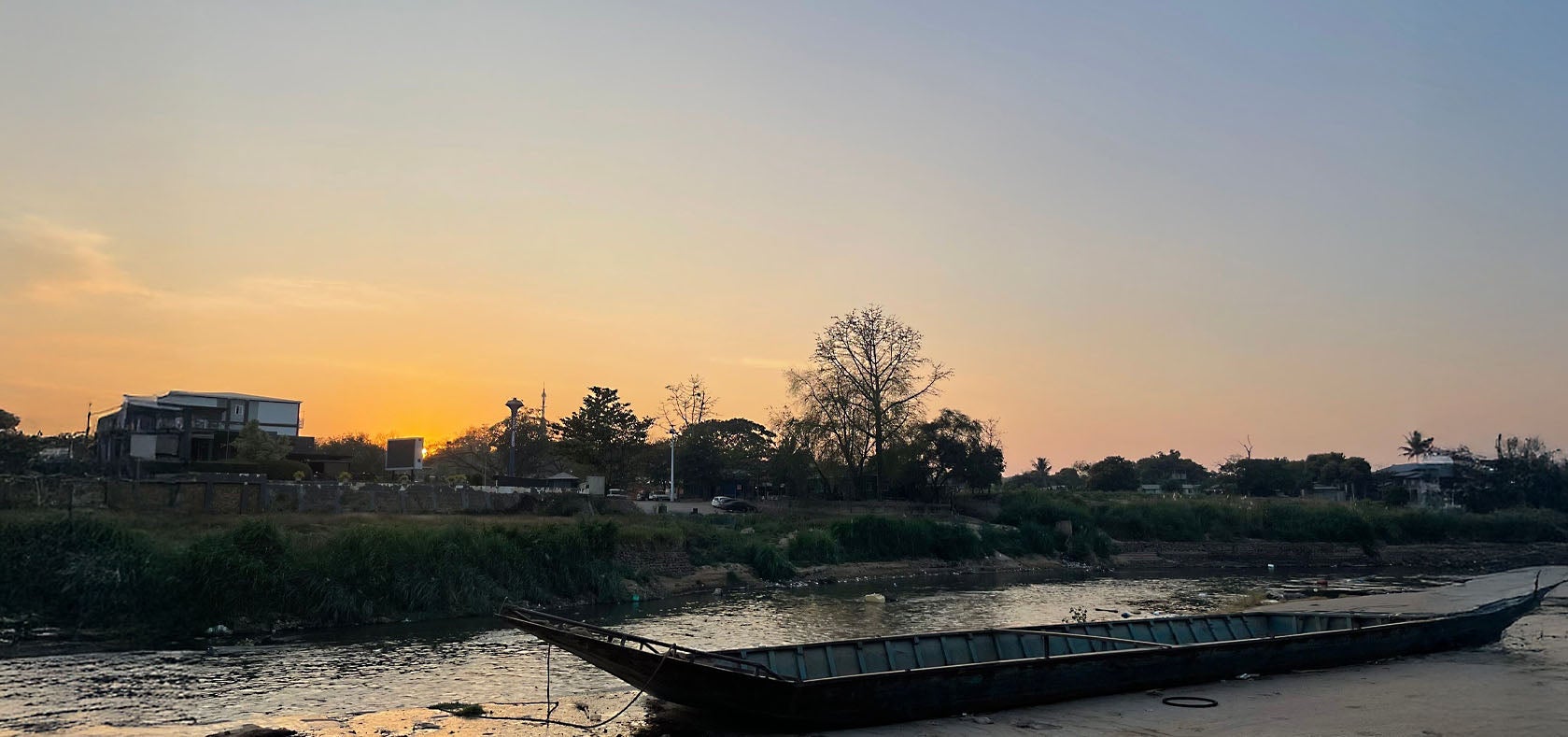Supporting local organizations to strengthen survivor-centred responses to violence against women in Thai border communities
Date:

Mae Sot, a bustling border town in western Thailand, lies across from Myanmar, approximately 500 kilometres from Bangkok. As a key transit point for migrant workers, refugees and displaced communities, it offers both opportunity and significant vulnerability, particularly for women and girls. Women migrant workers – especially those who are undocumented – face heightened risks of violence, exploitation, trafficking and legal insecurity. Despite these challenges, access to protection and justice remains limited, as violence against women is often overshadowed by other border-related issues, such as trafficking and irregular migration.
In this complex landscape, two local organizations – SHero Thailand and the Freedom Restoration Project (FRP) – have been working tirelessly to support survivors. SHero, founded in 2016, provides legal aid, policy advocacy and institutional training to improve access to justice for survivors of violence. FRP, on the other hand, runs a shelter and peer support groups, offering women a safe space to heal and rebuild their lives with dignity. Both organizations operate at the front lines, responding to urgent cases while also pushing for systemic change.
From 10-11 February 2025, UN Women, through the EU-funded PROTECT project, partnered with SHero and FRP to explore institutional responses to violence against women in Mae Sot and identify areas for strengthening. The visit was an opportunity to exchange knowledge, refine service-delivery approaches, and build a more coordinated and sustainable support system for survivors.
The mission brought together SHero’s legal advocates and FRP’s grass-roots service-providers, creating a space for deeper collaboration. While these organizations have worked side by side for years, there have been limited structured opportunities to align their efforts and drive wider systemic change that both organizations identify as a priority. This mission was a step towards bridging that gap.
UN Women resource experts introduced concepts and methods that extend beyond training and individual case-by-case interventions to drive structural and institutional improvements. SHero explored ways to embed best practices into their legal aid and advocacy work, particularly as they prepare to play a greater role in shaping Thailand’s revision of the Domestic Violence Act and engage in the upcoming 91st session of the Committee on the Elimination of Discrimination against Women (CEDAW) in June, when Thailand is scheduled to report. Meanwhile, FRP reflected on how to sustain their peer-support groups, which have provided a vital safety net for migrant women for over six years.
Nighina Azizov, Regional Programme Specialist on Ending Violence against Women at UN Women Asia-Pacific, highlighted the lasting impact of these efforts: “Sustainable change comes from embedding survivor-centred approaches into the fabric of organizations, ensuring they remain strong even as leadership shifts or funding fluctuates.”
Her words emphasize the need for collective and coordinated action that goes beyond individual efforts, creating structures that uphold survivor-centred responses over time.
A key element of the discussions was safe consultations with survivors – a practice that allows organizations to shape their services based on the real needs of the women they support. Both SHero and FRP reflected on how to conduct these consultations ethically, ensuring that survivors feel empowered.
A key takeaway was the potential for utilizing safe consultations to adapt the ‘Power and Control Wheel’ – a widely used resource that illustrates the dynamics of violence – to better reflect the Thai-Myanmar context. Many survivors shared that they are routinely pressured into mediation and family reconciliation, underscoring the need for survivor-led advocacy to challenge these potentially harmful practices. For undocumented survivors, the risks are even greater, as they often face hostility, threats of criminalization and deportation. These barriers highlight the urgent need for stronger protection mechanisms and survivor-centred policies.
Sia Kukaewkasem, FRP Founder, reflected on the importance of these conversations: “Working in isolation limits our impact. This partnership gives us the chance to build stronger networks, share strategies and ensure that survivors receive the comprehensive support they need – whether it’s legal aid, shelter or psychosocial support.”
Beyond technical discussions, the mission revealed the structural challenges that front-line organizations face daily. Mae Sot is home to more than 50 NGOs, yet coordination among service-providers remains fragmented and engagement with authorities can be challenging. Violence against women is frequently deprioritized, making it harder for survivors – particularly undocumented women – to access justice and assistance.
This is just the beginning of a deeper collaboration between SHero, FRP and UN Women. Moving forward, the focus will be on integrating survivor consultations into advocacy efforts, strengthening institutional frameworks, and ensuring that front-line organizations have the tools they need to sustain their work long-term, with the goal of building a system where no survivor is left without support, no matter their status or circumstances.
This mission was supported by the three-year EU-funded project “Ensuring Decent Work and Reducing Vulnerabilities for Women and Children in the Context of Labour Migration in Southeast Asia (PROTECT),” running from 2024 to 2026. The project is jointly implemented by the International Labour Organization (ILO), UN Women, United Nations Children’s Fund (UNICEF) and United Nations Office on Drugs and Crime (UNODC) to protect the rights of women and children in labour migration.